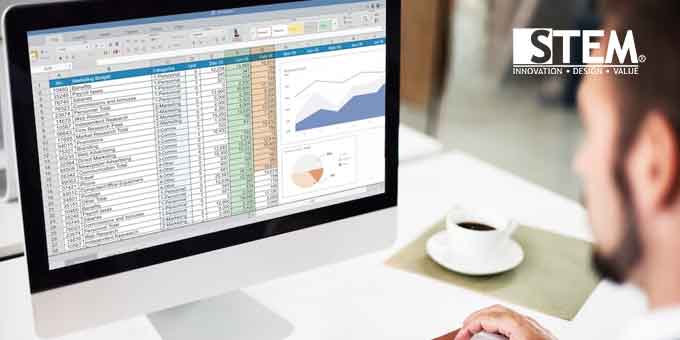Several SAP ERP software options are available in the market for companies that want to make their business management more efficient. Choosing the right software has become essential to compete in today’s global market. Our article will guide you with tips and tricks that will simplify the SAP ERP software selection process and help you to make the right decision.
1. Understand Your Business Needs
When choosing SAP ERP software, it is essential to understand your company’s unique needs.
Before making a decision, ask yourself, for example, what type of company do I own? What are my short-term and long-term goals? How many users will use the system?
Ensure you have the answers to these questions before choosing the right product for your business.
It’s a good idea; you also list features you want to use in the ERP system.
Research what the system can handle- from finance to HR and customer relationship management (CRM). Also, review some of the other SAP ERP vendors and determine if they fit into your company’s budget.
Finally, consider customer support and training when choosing SAP ERP software for your business because having a good customer service team can help your company succeed.
2. Evaluating Various ERP Solutions
Once you’ve identified your company’s unique needs, it’s time to evaluate various ERP solutions.
This critical evaluation should cover features, cost, performance, scalability, and customer support.
Ensure that all potential SAP ERP software meets the requirements of your business activities and can provide sufficient flexibility to adapt as business requirements change.
Also, take advantage of product demos and detailed product reviews when researching options from different SAP ERP vendors.
SAP ERP software is a business management solution from SAP—one of the companies’ most popular business software.
SAP ERP is a complete solution for companies that the system can integrate to manage finances, business management, customer relations, and more. It also includes advanced analytical capabilities, so you can get complete data information and make more informed decisions.
And with its default interface, you don’t have to sacrifice flexibility to get all of these features; You can customize it to meet your business needs.
3. Identifying SAP System Functions
When you compare different SAP ERP solutions, it is essential to consider the features and capabilities of the systems. For example, project management features, budgeting, and forecasting features, user access control settings, data integration, and data analytics reports.
Also, you should review the product roadmaps of SAP ERP vendors to ensure they provide continuous innovation around their core product, i.e., ERP.
You should also check if the system offers scalability so that the solution you want can grow with your business.
It’s important to consider how quickly you can deploy an ERP solution and the customer support the vendor provides. Additionally, review available pre-implementation services such as enterprise impact and best results and training for IT staff.
Finally, see if the product requires other third-party applications to function fully and ensure they are compatible with your internal system.
4. Set Budget for SAP ERP Implementation
Once you have identified the features and capabilities you need in an SAP ERP solution, the next step is to set a budget. The budget will depend on your business’s size, your ERP requirements’ complexity, and other factors.
Make sure to budget upfront costs (such as implementation) and ongoing software subscription fees. You should also consider service and support needs when evaluating SAP ERP vendors.
Once you have decided on the type of ERP solution you need, it will be easier to set an upfront budget. If you need more clarity on the cost of SAP ERP, discuss things with your potential vendor so that you can create an achievable budget and schedule for a successful ERP system implementation.
Also, ensure that each vendor you are considering can provide an estimated budget for software and services in advance. Because it is better to go over budget to ensure that sufficient funds are available when allocated in your SAP ERP project – and to avoid other problems when implementing new technology.
5. Determine Customization and Integration Needs
Customization is an important factor when choosing an SAP ERP system. To ensure that your ERP fits your business needs, ask the vendor to provide a scalable solution and open to third-party software integration.
This ensures that you can adapt or integrate with other software as needed.
For customization needs, ask the vendor what solution can accommodate types of customization. Do they offer changeability in their application? Are the developers ready to make the perfect customization for you? It’s also important to know if the system provides reasonable integration options.
While some integrations may require a development from both vendors, many systems have pre-integration features that make integration easier.
Finally, check with each vendor about their support team and how long it will take their team to solve any issues you encounter with customization or integration features. Knowing this information will help you decide which SAP ERP solution is best for your business. Learn about the most commonly used SAP ERP module.
An ERP (Enterprise Resource Planning) system takes work to implement. Both customer companies and implementation partners/vendors face many challenges. The customer feels that the software and vendor must deliver the desired results after all the effort, time, and money invested in the project.
On the other hand, vendors often face clients who need to know precisely what they expect or want from a new system. In the end, implementing an ERP system depends on the client’s expectations, the team’s experience (client and consultant), and how project management is implemented.
Through previous experience, PT. Sterling Tulus Cemerlang (STEM) strives to understand customers better, so you can get the best investment through IT and run your business more effectively and efficiently.
PT. Sterling Tulus Cemerlang currently focuses on various industries such as Retail, Distribution, and Manufacturing. This allows us to deeply understand our client’s business and operations to provide optimal solutions.
Trust the implementation of the SAP ERP system in your company with us because STEM is experienced and has the most consultants in Indonesia who are SAP Business One certified; many large companies have collaborated and obtained satisfactory results. To know more about STEM, please visit sterling-team.com and don’t hesitate to contact us immediately to cooperate.


